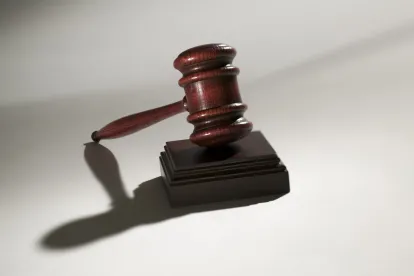Addressing the authority of the Patent Trial and Appeal Board (PTAB or Board) to determine the specific grounds for institution, the US Court of Appeals for the Federal Circuit concluded that the Board can make a final and non-appealable decision to deny institution of a subset of grounds contained within an inter partes review (IPR) petition on the basis that the non-instituted grounds are “redundant” to the instituted ground.Harmonic, Inc. v. Avid Technology, Inc., Case No. 15-1072 (Fed. Cir., Mar. 1, 2016) (Stoll, J).
Harmonic’s IPR petition alleged that the patent at issue was invalid in view of seven different prior art grounds. The Board instituted an IPR proceeding on one set of challenged claims based on one of those seven grounds. The Board did not institute four other grounds because they were deemed to be redundant to the instituted ground. In addition, the Board did not institute as to another set of challenged claims, which disposed of the remaining two grounds. The Board ultimately determined that the instituted ground did not render a subset of the first set of challenged claims unpatentable. Harmonic appealed.
On appeal, Harmonic asserted that the Board erred by failing to consider all prior art grounds contained in Harmonic’s IPR petition. The Federal Circuit noted that while it has jurisdiction to hear appeals from final written decisions, it does not have jurisdiction to hear appeals regarding institution decisions. This is because § 314(d) prescribes that “determination by the Director whether to institute an inter partes review under this section shall be final and nonappealable.” In addition, the Federal Circuit found that the US Patent and Trademark Office possesses the authority to promulgate its pertinent rule, 37 CFR § 42.108, which states that “the Board may authorize the review to proceed on . . . all or some of the grounds of unpatentability asserted for each claim.” Therefore, the Board can rightfully make a final and non-appealable decision to (1) institute an IPR proceeding, (2) institute an IPR proceeding on a subset of the grounds contained within the IPR petition, or (3) deny institution of an IPR proceeding.
Turning to the merits, the patent at issue is directed to a method for eliminating interruptions in decompressed video streams. To avoid these interruptions, the patent switches between multiple video buffers to decompress the data at a rate that is faster than the video display rate. Importantly, the subset of challenged claims found not to be unpatentable requires this switching to happen after a “predetermined period of time.” After reviewing the prior art cited in connection with the instituted ground, the Board found that the prior art references did not disclose or suggest the switching of data streams after a predetermined period of time with sufficient particularity. Consequently, the Board found that Harmonic failed to prove that group of claims to be obvious. The Federal Circuit concluded that the Board did not err and affirmed the Board’s findings.
Practice Note: The holding of this case as it relates to institution decisions may soon be clarified, as the Supreme Court of the United States granted certiorari in Cuozzo Speed Technologies v. Lee to determine whether the Federal Circuit erred in holding that the Board’s decision whether to institute an IPR proceeding is final and non-appealable. A decision is expected by the end of June 2016.



 />i
/>i
